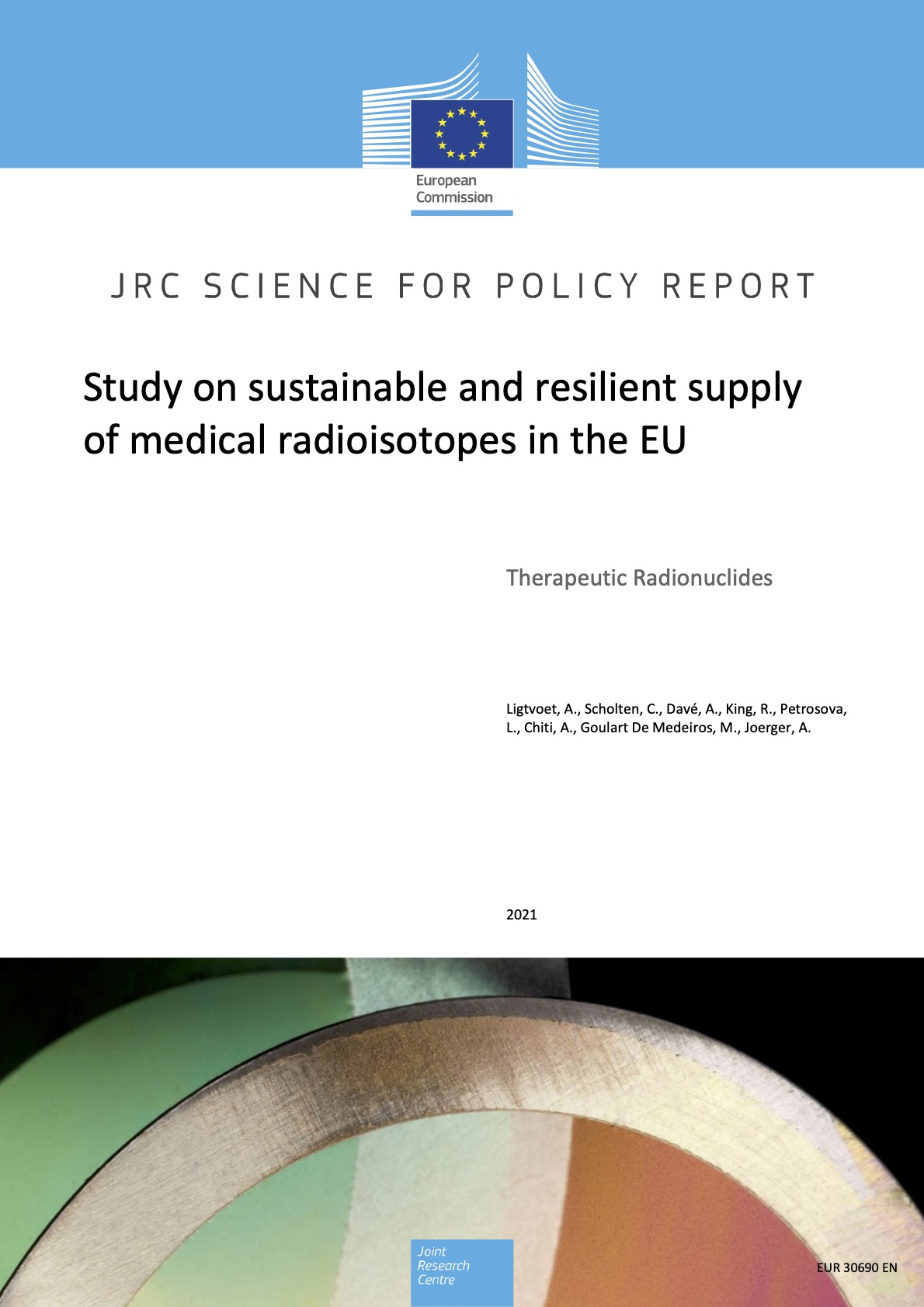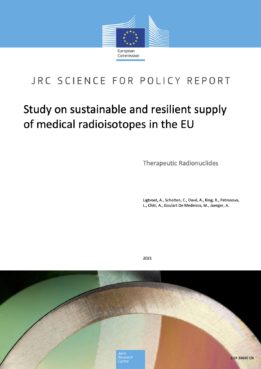Study on sustainable and resilient supply of medical radioisotopes in the EU
Publication date: 18 Oktober 2021 | Report language: EN
Nuclear medicine is an innovative and growing field in medicine for the diagnosis and treatment of various diseases including cancer. One of the European Commission’s main priorities is to improve the prevention, treatment and care for cancer as set out in Europe’s Beating Cancer Plan. Actions within this plan concern initiatives to improve access to innovative cancer diagnoses and treatments as provided by nuclear medicine. Medical radioisotopes are essential for the provision of these diagnoses and treatments. To ensure and improve the prevention and treatment of cancer in Europe it is therefore essential to have a sustainable and resilient supply of medical radioisotopes in the EU.
The JRC asked Technopolis Group to study the supply, use and demand of therapeutic radioisotopes in the EU. Radioisotope use for therapy is currently small compared to the use for diagnosis, therefore little insights were available on the market for therapeutic radionuclides. It is however a market that is growing fast with many innovations in the past few years, in a field that is promising for the treatment of cancer and other diseases. Our study has contributed to improved insights for policymakers on the potential and concerns of this market for the EU.
Some key conclusions of our study are:
- The demand for several therapeutic radionuclides is expected to increase strongly in the next 10 years, especially for 177-Lutetium.
- Most therapeutic radionuclides are most effectively produced using nuclear reactors, only a few can be produced (effectively) with accelerators.
- Europe has currently multiple local suppliers for most therapeutic radionuclides that are commonly used, but these are supplied by seven ageing research reactors.
- In less than 20 years five of these research reactors will stop operations with uncertain plans for new build to replace or increase this capacity.
- The current production capacity for therapeutic radionuclides seems adequate for meeting current demand but is fragile.
- Current production capacity is not considered resilient and cannot sustain the overall projected demand growth for therapeutic radionuclides.
- Foreign (non-EU) dependencies exist in the supply chain regarding the enrichment of lowly enriched Uranium and stable isotopes (esp. 176-Ytterbium). The ageing European reactor fleet could increase foreign dependency for irradiation capacity.
Some key recommendations of our study are:
- Concerted and urgent action of Member States at EU level is needed to secure sufficient irradiation capacity for therapeutics radionuclides in Europe in the future.
- One should decide politically whether Europe wants to be self-sufficient in enrichment to produce target materials and research reactor fuel.
- The EC should consider supporting public-private R&I to strengthen future supply chain for therapeutic radionuclides.
- Actors in the supply chain should widen information-sharing regarding supply capacities, new builds, demand expectations and outages for key therapeutic radionuclides.
- Member States, together with the EC, should improve standardised national data collection on the use of radiopharmaceuticals.
Read our full report for all our findings, conclusions and recommendations and to get a deep understanding of the use, demand and supply of medical radioisotopes in the EU.





